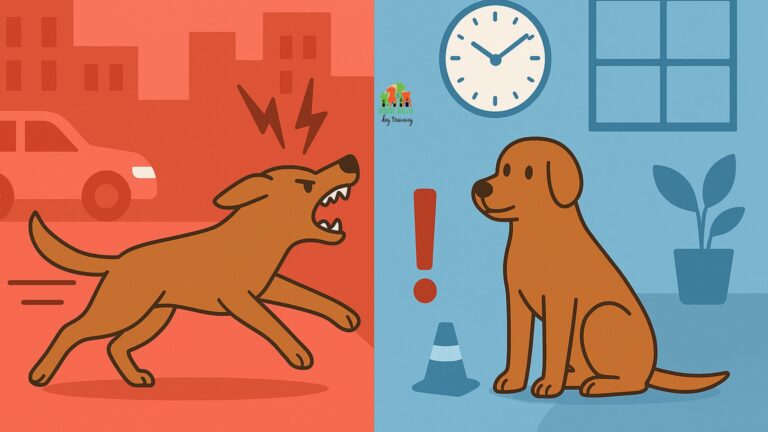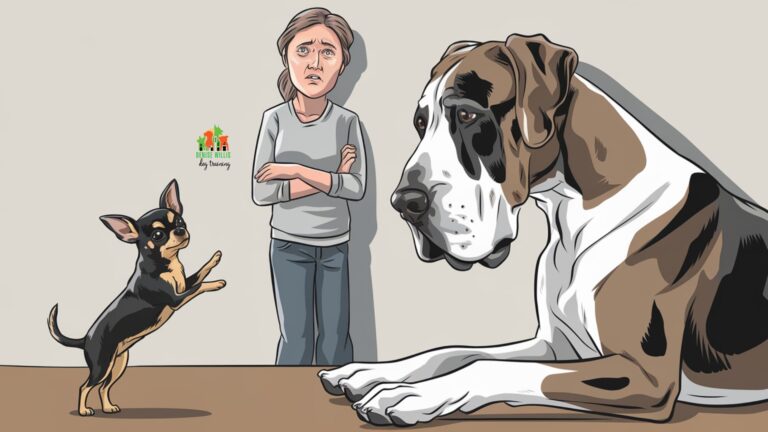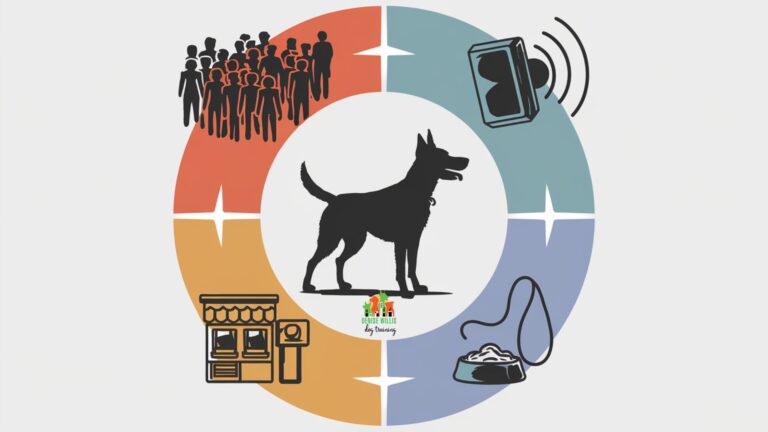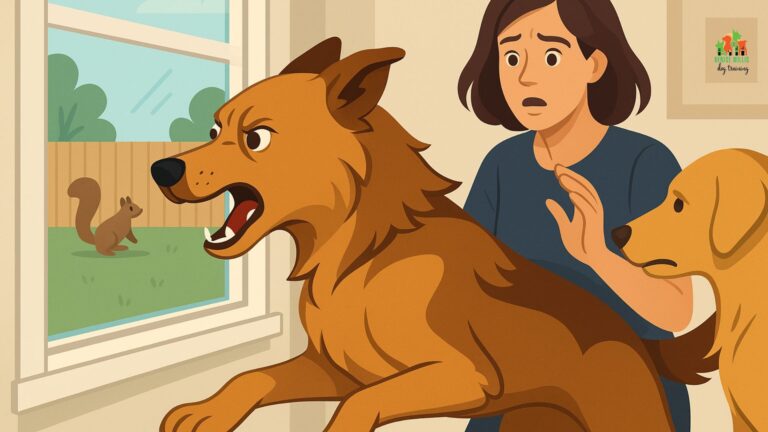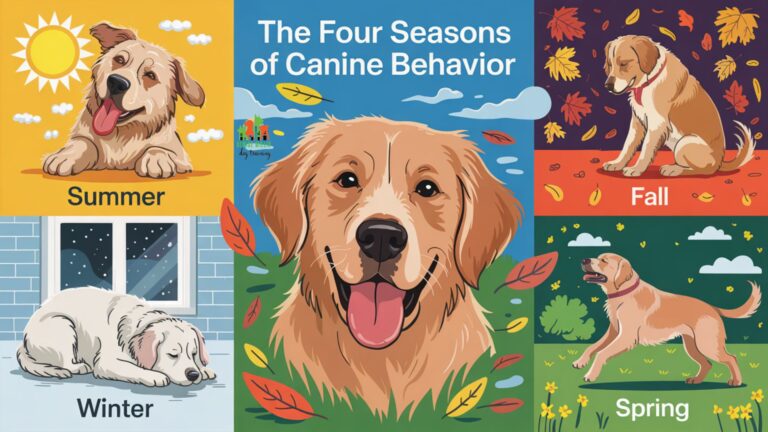The Ins and Outs of Dog Obedience Training in Baltimore
📍 Service Area Notice: DW Dog Training provides in-person training services exclusively in the Greater Baltimore area. While our blog content is designed to help dog owners internationally, our hands-on training services are locally focused. For readers outside our service area, we hope you find value in our articles and welcome you to reach out with questions!
Dog obedience training in Baltimore provides dedicated pet parents with the skills, tools, and knowledge to establish healthy communication, trust, and resilience with their canine companions. Proper training cultivates good behavior and curbs problematic issues to restore harmony in the home.
From basic commands to solutions for aggressive behavior, Baltimore offers a breadth of top-rated obedience training services to meet each dog’s unique needs. So whether you have a headstrong puppy, an adult dog requiring a refresher course, or a shelter rescue struggling to transition to domestic life, the city’s professional trainers and behaviorists can help.
This guide will explore the fundamentals of obedience training, popular methods utilized in Baltimore facilities, what to expect from classes and private sessions, tips to reinforce learning at home, and how to choose the right training approach for you and your dog.
Why Is Dog Obedience Training Important?
For both young puppies and mature dogs adopted later in life, obedience training is about more than just teaching your dog to respond to basic commands like “sit” and “stay.” It establishes the foundation for effective communication, trust, and mutual understanding within your relationship.
Professional training guides pet parents to become capable leaders that their dogs look to for support. It provides the tools to curb problematic behavior like excessive barking, aggression, anxiety, and poor social skills that often develop in the absence of proper guidance.
Through positive and rewarding obedience training, dogs form constructive emotional bonds with their owners and learn to exhibit good behavior in response to real-world situations. This allows them to become well-adjusted members of the household.
Benefits of Dog Obedience Training
Dog obedience training, whether through group classes, private sessions, or specialized boarding programs, offers many advantages:
- Improved communication: Dogs don’t speak our language. Obedience training teaches them to understand and respectfully respond to basic human cues.
- Enhanced trust and bonding: Positive training methods build trust between owner and dog through clear direction and rewards-based reinforcement.
- Well-socialized behavior: Exposure to controlled group class environments and new people following training supports good manners and social skills.
- Solution-based guidance: Trainers work closely with pet parents to curb problematic and aggressive behavior through tailored training plans.
- Better quality of life: Well-trained dogs can accompany owners more places and engage in enrichment activities like agility and nose work.
- Health benefits: Trained dogs tend to get more exercise and mental stimulation. The structure also reduces anxiety linked to poor behavior.
- Stronger family integration: Training facilitates harmony so dogs can safely and pleasantly integrate into busy households with kids, guests, etc.
For these reasons and more, even dogs with a naturally friendly and docile temperament benefit immensely from proper obedience training over the course of their lives.

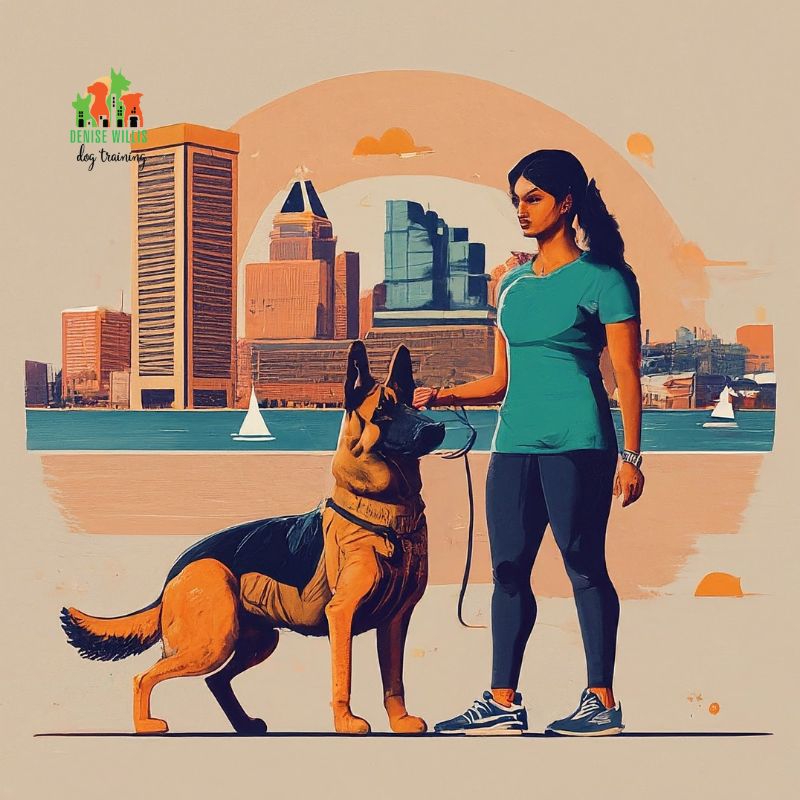
Common Behavioral Problems Solved Through Baltimore Dog Training
Baltimore dog parents seek out obedience training to help resolve all types of unwanted behavior problems in their pets. Some commonly addressed issues include:
Basic Skill Deficits
- Difficulty learning or responding to commands like “sit,” “stay,” and “come”
- Pulling vigorously on the leash during walks
- Jumping on owners, guests, or children
- Poor housebreaking habits
- Destructive chewing, barking, or digging inside home
Anxiety and Fear
- Separation anxiety when left alone, resulting in pacing, howling, destruction, etc.
- Excessive drooling, panting, hiding, or trembling around strangers or in public
- Aggression triggered by unfamiliar environments or perceived threats
- Difficulty settling down (constant pacing, inability to relax)
Aggression
- Barking, lunging, or snapping at visitors or strangers passing by during walks
- Possessiveness over food, treats, toys, or other resources
- Biting or nipping family members or other pets
- Sudden aggression the dog fails to respond to cues to disengage from
Reputable facilities like DW Dog Training have specially designed board and train programs to help rehabilitate aggressive dogs. But any form of consistent obedience training can help curb aggressive behavior over time.
Excessive Excitement
- Constantly seeking attention through pawing, whining, barking
- Over-exuberance and hyper behavior, difficulty calming down
- Inability to control themselves around food or toys
Through clear and rewards-based training grounded in trust, dogs naturally begin to modify many of these problematic behaviors on their own in order to please their owners and “earn” incentives like food, attention, toys, and praise.
Dog Training Techniques Used By Baltimore Experts
There exist numerous schools of thought on dog training philosophy. However, most experts today agree that reward and relationship-based methods focused on trust and cooperation tend to yield the best results in changing canine behavior long-term.
While a dog’s unique personality and the specifics of unwanted behaviors should dictate customized training solutions, popular methodologies embraced by Baltimore dog obedience schools include:
Rewards-Based Training
This enormously popular training style utilizes positive reinforcement through rewards like treats, praise, toys, and play to encourage good behavior. Punishment is never used. Rewards-based training fosters willingness in dogs to follow directions by building trust and showing clear incentives for compliance.
Trainers utilizing this method also apply management strategies and distraction/redirection techniques to curb undesirable habits. Extended stimulus control exercises likewise help dogs practice good manners around controlled triggers.
Relationship-Based Training
Relationship-based training emphasizes clear communication and mutually earned respect between pet parents and dogs. Techniques focus on enhancing the human/animal emotional bond through games and activities facilitating trust and willingness.
Relationship-building provides the foundation allowing dogs to learn constructive behaviors based on confidence in their owner’s direction rather than fear or the mere promise of a food reward.
Hybrid Training Approaches
Many trainers certified through programs like the Karen Pryor Academy (clicker training) or Victoria Stilwell Positively Dog Training blend relationship and rewards-principles into integrated training regimens.
These hybrid approaches leverage praise, play, treats, and toys to incentivize training goals while also emphasizing trust-building bonded activities.
Structure/Leadership-Based Training
Firm and dedicated leaders that provide stability, predictable rules/routines and guided enrichment tend to have the most balanced dogs.
Trainers focused on structure and leadership incorporate relationship-building but also provide realistic expectations and environmental management optimal for a dog’s temperament given inherent breed traits.
Correction/Command-Based Training
Traditional obedience training centered verbal and leash corrections tend to take an adversarial tone focused on teaching a dog “who’s boss.”
Purely command/correction-based training has fallen out of favor due to high failure rates. However, light corrections are occasionally utilized by balanced trainers in conjunction with rewards to communicate down behaviors.
In general, a training philosophy embracing trust, mutual understanding, incentives through positive reinforcement, environmental shaping, strong leadership, and relationship-building tends to provide the most holistic behavioral solutions for dogs.
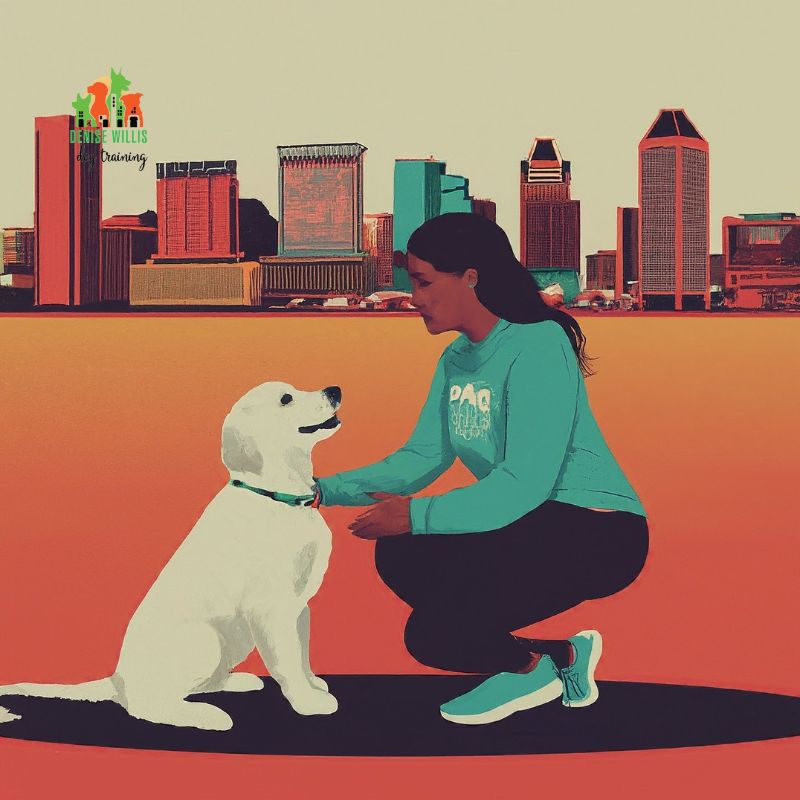
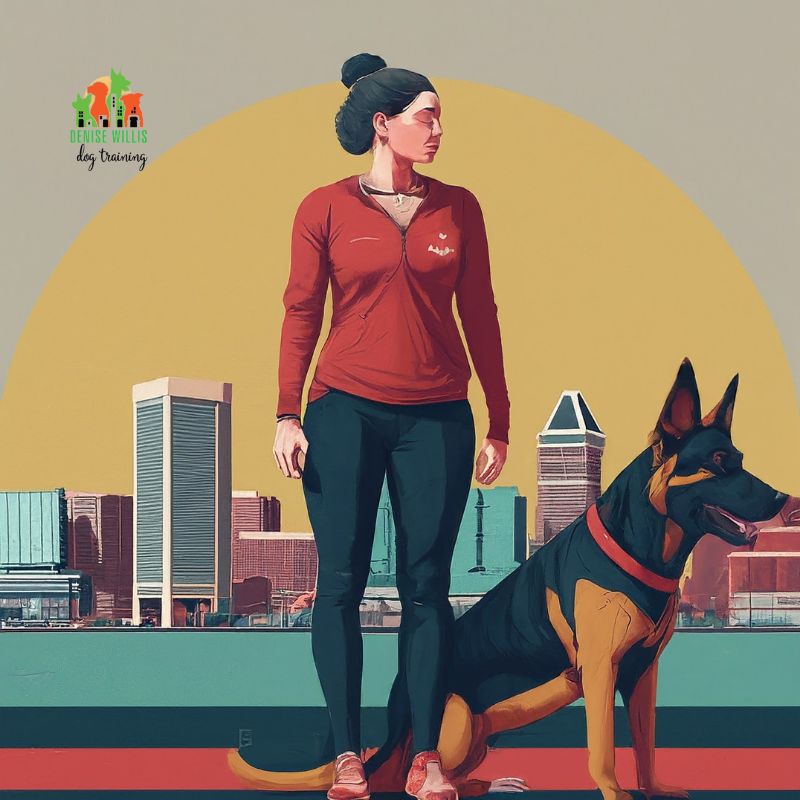
What To Expect From Baltimore Dog Obedience Classes and Private Sessions
The format, setting, duration, and specific curriculum covered during a Baltimore dog obedience training program varies based on whether pet parents choose group classes, private lessons, a specialized overnight boarding school, or hybrid options.
Private Dog Training Sessions
Private dog obedience training allows for tailored 1-on-1 instruction guided precisely by a pet parent’s unique goals, challenges, and the dog’s specific problematic behaviors. Lessons often last 45 minutes over blocks of 4 to 8 total sessions.
DW Dog Training is a trusted provider of private lessons offering specialized assistance via:
- 101 Intro Lessons to evaluate training needs, offer program guidance, and set objectives.
- In-depth Session Packages covering socialization strategies, obedience basics, behavioral solutions, and more. These support customized curriculums and flexible scheduling.
Board and Train Programs
Board and train programs allow dogs exhibiting serious behavior issues like biting, aggression, or extreme anxiety/excitement to work directly with experienced professionals in dedicated training school environments utilizing customized curriculums.
Dogs reside on-site at facilities like DW Dog Training for two to three-week durations working on behavioral rehabilitation, impulse control, obedience, and skills application. This intensity jump starts progress unfeasible in limited group or private lessons. Owners then receive post-program support to maintain improvements.
Hybrid Group and Private Offerings
Many training providers offer hybrid bundles blending group lessons for socialization and owner education with targeted private sessions tackling individual dog’s struggles.
This allows pet parents to learn hands-on while still receiving customized behavioral solutions. Hybrids optimize time efficiency and cost for those balancing tight schedules and budgets.
No matter the format, quality training programs provide clear and rewarding instruction modeled on relationship-based principles and positive reinforcement to elicit willing cooperation and changed behaviors continuing long after formal courses end.
What Commands Are Taught During Obedience Training?
While each dog presents unique opportunities and challenges, most Baltimore basic obedience training courses instill key behavioral cues and skills allowing better communication, bonding, manners, and daily conduct. Common curriculum elements include:
- Essential Commands: Sit, stay, down, come, heel, leave it, drop it, etc. These provide direction and impulse control.
- Loose Leash Walking: Proper leash handling and positioning to prevent pulling during outdoor walks and trips.
- Housebreaking/Potty Training: Schedule regulation, crate training, and positive reinforcement to teach dogs approved bathroom habits.
- Chewing/Biting Deterrents: Providing appropriate outlets for natural chewing instincts plus redirection techniques.
- Socialization Skills: Controlled exposure to sounds, environments, people, animals, etc. allows good long term manners.
- Separation Solutions: Desensitization, enrichment toys, simulated departures, and more help dogs learn to self-soothe when alone at home over time.
- Resource Guarding Prevention: Trading games teach dogs people and other pets approaching food or possessions is positive. Dogs relinquish objects on cue.
Additionally, advanced courses may progress into competitive obedience, agility foundations like jumps, scent training through hide-and-seek games, urban hike training simulating outdoor exploration, or public access skills for therapy certification.
Real-life application outside of sessions means dogs generalize taught skills enabling well-adjusted behavior as part of daily life rather than just obliging handlers when overt treats or praise are present in artificial contexts.
How Are Dogs Trained to Use the Bathroom Outside?
A primary aim of puppy obedience training is teaching good housebreaking habits so dogs learn to eliminate waste exclusively outdoors through a coordinated process of:
- Close supervision
- Frequency of bathroom breaks
- Verbal cues like “Go potty” issued before and during elimination
- Positive reinforcement via high-value treats, excited praise and play immediately upon completion
- Confinement when unsupervised through leashes and crates preventing accidents
- Corrective feedback if accidents occur inside (admonishment must be avoided)
As puppies age and progress, their capacity to wait longer without eliminating builds while verbal cues get linked reliably to going potty outside rather than indoors.
For adult dogs struggling with accidents, remedial housebreaking involves going back to basics using the above. Patience and medical exams to eliminate underlying issues are also key.
How Much Does Dog Obedience Training Cost?
The price of obedience training varies substantially based on class/lesson format, length of program, inclusion of extras like specialized behavioral rehabilitation or boarding, trainer qualifications, city rates, and more.
That said, at the time of writing average group and private lesson costs in Baltimore break down as:
Group Class Packages:
- Click here to get the latest pricing for group classes
Private Lessons:
Board and Train:
Nearly all training businesses offer free consultations allowing pet parents to discuss issues, program options, and budget to find the right fit before enrollment.
How to Pick the Right Dog Trainer in Baltimore
With so many options offering obedience training in Baltimore, performing due diligence allows pet parents to align with professionals well-equipped to address their unique requirements.
Key selection criteria to evaluate potential trainers include:
Relevant Credentials
- Certified Professional Dog Trainer (CPDT) credentials via the Certification Council for Professional Dog Trainers denote extensive tested comprehension of humane, science-based dog handling/modification theory.
- Certified Applied Animal Behaviorists (CAAB) have undergraduate degrees in behavioral science, graduate study through Masters or Ph.D. programs, and many hours of professional mentored experience. CAAB’s can prescribe medication if necessary.
- AKC obedience trainer approval ensures an updated understanding of positive motivation methods encouraging willingness.
- Veterinary behaviorist consultation access helps determine any underlying medical issues contributing to unwanted behaviors.
- Facility affiliations like Pet Professional Guild membership signal ongoing education and peer accountability.
Customized Experience
- Breadth handling wide breeds/issues prevent forcing one-size-fits-all solutions onto dogs.
- Client-centered objectives/plans address pet parents’ most pressing problems and lifestyle needs.
- Openness to questions and active progress monitoring allow for adjusting approaches when required.
Training Approach Compatibility
- Emphasis on positive methods focused on building communication, trust, and rewards yields the highest behavioral change efficacy rates long-term through willingness versus fear.
- Relational focus grounded in empathy, patience, and support facilitates stress-free progress.
- Light corrections only as a last resort help curb dangerous behaviors when positive methods alone fail. Corrections should receive consent and be paired with rewards.
Strong Track Record
- Community ratings/reviews offer visibility into client satisfaction correlated to happiness-improving dog outcomes.
- Video case studies prove competency in resolving common issues like leash pulling, dog aggression, separation anxiety, etc through edited video client testimonials.
- Prompt response rates provide confidence that once enrolled support will remain reliable.
Pricing Transparency
- Free introductory consultations help determine pricing suitability through personalized program recommendations before enrollment.
- Defined costs/terms enable budgeting, billing clarity, and setting expectations. Reasonable pricing can vary from household to household.
While credentials and testimonials paint part of the picture, commit to initial meetings with potential trainers at home or on location with your dog present to directly evaluate skills helping clients achieve lasting transformations.
Preparing for Obedience Training Sessions
Bringing home a new puppy or rescue dog is incredibly exciting. Yet the first weeks of establishing essential routines and manners lay the foundation for years of happiness and harmony together.
Getting prepared for professional training early allows pet parents to skillfully shape good habits so dogs more easily retain lessons. Useful preparation tips include:
Start Teaching Basic Skills Right Away
Use free YouTube tutorials to jumpstart training key skills like:
- Sit – Have the dog sit before receiving meals, toys, going outside, etc.
- Come – Call the puppy for frequent rewards-based playtime chase sessions.
- Taking Treats/Toys Gently – Say “easy” when taking items; praise calm relinquishment.
Set Up The Crate And Containment
Get crate acclimation and housebreaking started immediately through:
- Feeding meals inside crates so they become positive retreats
- Providing stuffed chew toys exclusively in crates makes them desirably stimulating hideouts
- Using baby gates to block off rooms and keep pups confined to small areas when not directly supervised to facilitate good potty habits
Start Loose Leash Handling
- Keep first leash sessions extremely short in low-distraction areas
- Make walks fun through praise, toy play, and high-value treats so pups connect the leash to good things
- If pulling occurs don’t brace or jerk back – simply stop moving until slack leash resumes, then reward relaxed walking
Manage Nipping And Mouthing
Puppies mouth everything to investigate their worlds. So:
- Always have chew toys available to redirect biting
- Say “enough” then present a toy alternative when contact gets painful
- Withdraw attention if bites persist so pups learn fun stops when teeth touches the skin
Learn Your Puppy’s Triggers
Pay attention to capturing things eliciting excessive barking, nipping, anxiety, etc. like doorbells, car sounds, feet, brooms, strangers approaching on walks, etc. Make notes then share them with your trainer so these can be incorporated into socialization exercises.
While even professionals won’t expect perfection, establishing competency with a few key skills greatly accelerates formal training efficacy when leveraged by skilled dog behavior experts.
Ongoing Education Opportunities After Formal Training
The benefits of dog obedience training extend far beyond basic manners and behavioral troubleshooting.
Structured courses provide critical lifelong foundations. But continued exposure cementing abilities ensure well-adjusted dogs capable of applying etiquette and impulse control across ever-evolving situations into maturity.
Take the AKC Canine Good Citizen Test
Most obedience programs administer some approximation of the renowned AKC Canine Good Citizen test evaluating practical manners like:
- Polite greeting manners when meeting new people
- Calm walking through crowds
- Being petted by friendly strangers
- Sitting politely beside caregivers
- Coming when called off leash even around distractions
- Showing restraint around food
- Remaining calm when left briefly with another handler
Passing builds real-world confidence. Sign up through an approved AKC evaluator like those stationed at most Petco locations when ready.
Enroll In Ongoing Group Classes
Beyond foundational puppy and novice level group class series, progressive programs for enhancing community engagement exist like:
- The Art of Dog Sports – Nosework, treibball, disc dog, and other recreational outlets for energy and bonding
- Canine Good Citizen Advanced – Public access skills to take dogs more places like restaurants, office visits, etc.
- Competition Obedience – Precision heeling, recall, and performance allowing teams to enter contests testing practical obedience, agility, and skill application in real environments.
- Agility for Fun – Instilling confidence and coordination through jumping, weaving, climbing, and obstacle navigation at all life stages.
Check with training facilities like DW Dog Training for availability.
Practice Generalization Exercises
Dogs often initially learn obedience skills through heavy “bribery” utilizing high-value treats that fail to translate into willing reliability sans payment.
Hone retention by stretching the duration between rewards and practicing commands calmly across assorted locations with unexpected distractions.
Functional obedience communication remains crucial for dogs years after initial training as they mature, face evolving stressors, or regress without upkeep.
Committing to some form of continued education ensures your dog retains bulletproof behavior and manners adapting to all life brings: changes to household routines as kids arrive, moving homes, traveling, etc.
Additional Thoughts
Dog obedience training provides dedicated Baltimore pet parents the roadmap to better relationships with happy, well-adjusted canine companions.
Whether undertaken privately, via group sessions, or intensive boarding programs, professional guidance arms owners with the tools and knowledge to establish leadership, trust, effective communication and problem-solve all types of unwanted behaviors.
Through positive and humane rewards-based training grounded in mutual understanding and resilience, pet parents connect with dogs on their level facilitating willing cooperation and good manners. This brings balance enabling entire households to coexist smoothly long-term, even when kids, frequent guests, unknown visitors, or other pets enter the mix.
If challenges feel beyond your skill level don’t hesitate to enlist the support of one of the many exceptional obedience training professionals, like DW Dog Training, available in the Baltimore area. They can provide both dogs and owners the certainty needed to get issues resolved and tails wagging.
Final Thoughts: Denise Willis Is Building Better Bonds Through Ongoing Support
At DW Dog Training, we recognize that the training process is an ongoing journey. While formal obedience courses build essential foundations, retaining skills and continuing education ensures your dog remains a mannerly, well-adjusted companion for years.
We encourage pet parents to pursue opportunities like the AKC’s Canine Good Citizen test or advanced specialty classes to put emerging abilities into practice across real-world situations. This cements reliable behavior as regular reinforcement helps dogs generalize proper conduct.
Additionally, our trainers remain available to graduates needing guidance curbing regressions or tackling new issues arising from major life changes. We find refreshers enormously useful during challenging transitions like welcoming babies, moving homes, or losing long-term family members.
DW Dog Training aims to support the health of human-canine relationships long after initial training ends through continued check-ins, troubleshooting advice, boarding assistance, and reminders to regularly refresh central skills. We’re invested in being a trusted partner for the long haul.
If you have concerns about retaining the manners and impulse control your dog displayed at the end of their training program, contact us today. We’re happy to provide recommendations tailored to your circumstances so you continue enjoying one another for years to come.



